Hope, Healing & Freedom Podcast : Ep 13
TRANSCRIPT
For the next few days we will be focusing on Forgiveness for our podcasts.
You might be thinking “Uh-oh. I’m not sure I want to hear about this.”
Forgiveness is something that we all know that we should do but it isn’t always easy. Did someone’s name or face pop into your mind when I mentioned forgiveness? I can hear some of you now. “But you don’t know what has been done to me.” Or “How can I forgive when they’ve not even asked for my forgiveness?” “So and so doesn’t deserve to be forgiven for what they did.” Or maybe it’s: “They don’t deserve to be forgiven for what they didn’t do.”
In the next couple of podcasts we are going to talk about:
- What does the Bible say about forgiveness
- What Forgiveness is and What it isn’t
- What do I do when I don’t feel like forgiving?
- Hindrances to forgiveness
- The benefits of forgiving and the consequences of not forgiving.
Let’s begin with prayer:
Father God, I ask that you would open my heart to hear what you have to say to me today. Show me if there is anyone that I need to forgive. Give me the grace I need. Amen
Let’s begin with what the Bible says about Forgiveness.
The Bible is clear about our need to forgive. Our key scripture today is Matthew 6:14-15
“For if you forgive men their trespasses, your heavenly Father will also forgive you. But if you do not forgive men their trespasses, neither will your Father forgive your trespasses.”
Matthew 6:14-15
I remember years ago in a Bible Study I was leading someone asked me about this scripture. It was the first time I was faced to seriously consider Matthew 6:14-15. As I read it I was astonished that my sin wouldn’t be forgiven if I didn’t forgive. I was sure that it was a misprint or that the text had been translated incorrectly!
My friend was in a very difficult marriage and having a difficult time forgiving their spouse. The spouse was not very easy to get along with. He didn’t treat her very well. I understood why she would be having a difficult time forgiving. For some reason that day this scripture just jumped off the page at me. This friend was questioning the validity of this scripture. Honestly, as I pondered it I struggled with it myself. Could God really be saying that we are not forgiven if we don’t forgive? I was challenged and determined to find the answer. As I meditated, prayed and pondered during the next few days I realized that Father God was saying that if we don’t forgive others we don’t really understand or comprehend what Jesus Christ did for us on the cross. He gave his LIFE for us. We are being asked to forgive. It’s not costing us our life. It might be costing us but not the price that He paid. His forgiveness was complete. He chose the ultimate sacrifice of giving His life for mine. And for you. If I refused to forgive I am in a way negating His sacrifice. He wasn’t asking me to die but only to decide to forgive.
Now, I’m sure like me some of you are challenged with this truth about forgiveness. Let’s look at some other scriptures about forgiveness.
“In anger his master handed him over to the jailers to be tortured, until he should pay back all he owed. This is how my heavenly Father will treat each of you unless you forgive your brother or sister from your heart.”
Matthew 18:34-35
In this story we see a King that showed mercy and forgave a huge debt that the servant owed. Then the servant turns around and requires someone that owes him much less to pay up or else! Obviously the servant didn’t comprehend how much it cost the King to forgive his debt. So the King, in his anger, sent the servant to jail until he could pay up. The servant clearly had a lesson to learn about forgiveness.
Think about it this way. We owe a debt for our sin. It is a huge amount that we could never pay. Jesus, our King, stepped in and paid our debt. So now we have to choose. Are we going to be like the unforgiving servant and make someone who owes us much less “pay” for their sin? The master turned him over to the tormentors until he should pay the debt. I think I’ve watched too many war movies and I have a pretty good idea in that context what tormenting might look like. But what about for us today? I don’t know about you but I don’t want to be turned over to the tormentors mentioned in this verse. Have you ever wondered just what are the tormentors? I’ve heard it said that “to refuse to forgive inflicts inner torment upon us”.
So in Matthew 18:34-35, Jesus refers to tormentors—a noun, not a verb. He is saying the one who refuses to forgive, the Christian who harbors grudges, bitter feelings toward another, will be turned over to torturous thoughts, feelings of misery, and agonizing unrest within.
Well, We’ve probably all dealt with these kind of “tormentors” at one time or another in our lives. I recall a message I heard years ago about this topic. When a spouse, or a boss, or maybe a family member has offended or hurt you significantly we can rehearse the hurt. We think about the event over and over in our minds. In a way we want to reverse the hurt and see them suffer as we have suffered. As we nurse the hurt our peace and joy are non-existent and we are basically miserable. Often our sleep is interrupted. I think these are the tormentors. Loss of joy. Loss of peace. Loss of enjoyment of life. Loss of sleep. We’re miserable. In the process we give the enemy a landing strip in our lives and he uses it!
So what does it mean to “forgive from the heart”? Well, we can make the decision to forgive the person for the event that caused the hurt but we must also get healing for the wound in our heart. Otherwise the wound is still there. When the wound is unhealed we have what we call “landmines”. In a war zone landmines are placed under the surface by the enemy. They are hidden. The goal is for someone to come along and step on the landmine and get blown up. When our hearts are not healed they are like landmines or unhealed emotional hurts of the heart. I know you’ve had this happen. You say or do something and someone blows up at you. Their emotional response or reaction is way over board for the event that transpired. You just stepped on a landmine that had been placed their intentionally or unintentionally by someone else. It was an unhealed hurt of the heart.
Let me give you a personal example: One night after I had cleaned up the kitchen I stuck my head into the room where Lee was. He was sitting at the desk in front of the computer. I said, “Hey what are you doing?” He said, “I’m paying the bills. “ I said, “I’m outta here” and I went upstairs to our bedroom and closed the door. It was a very definitive act. Now, we were both on a healing journey. He followed me upstairs and asked me why I reacted the way that I did. As I pondered and asked Holy Spirit about it I remembered something from my childhood. You see when my Dad paid the bills he would get very angry. I remembered him yelling at my Mom about how much money she spent and saying that us kids cost too much money etc… It was not a good time to be around my Dad so I learned to hide in my bedroom. Literally I hid in my closet. As we processed this event Lee was able to say to me, “Have I ever treated you like that?” No, I answered. I realized that I had reacted to him because of the unhealed emotional wound in my heart, the landmine put there by my Dad. My Dad didn’t intentionally put that landmine there but nevertheless his actions had caused it. Now that my heart is healed in that area I have no problem with Lee paying the bills. I don’t have to run to my bedroom to protect myself. Getting my heart healed included forgiving my Dad and allowing Jesus to heal the hurt.
You know there are a lot of misconceptions about forgiveness. When we understand true Biblical forgiveness it can make it easier for us to forgive.
What the scriptures DON’T SAY:
- These scriptures don’t say that we only forgive if the person has asked for forgiveness.
- The scriptures don’t say that we have to go to the person and tell them that you’ve forgiving them for how they hurt you.
- Forgiving someone for what they did to you (intentionally or unintentionally) is a decision that you make. It’s between us and God. We forgive them and release them. It isn’t necessary for you to tell them that you’ve forgiven them unless they’ve asked you for forgiveness in the past.
- The scriptures don’t say that forgiving is easy.
- The scriptures don’t say that forgiving won’t cost you. (It cost the king a lot of money, It cost Jesus His life)
What the scriptures DO SAY:
- God requires it. “If you forgive you will be forgiven. If you do not forgive you will not be forgiven.” Mt. 6:14-15. If we want to be forgiven we must forgive.
- The consequences of not forgiving are severe. (not being forgiven, turned over to the tormentors, health and emotional issues) Mt 18:34-35
If we want forgiveness we must forgive. We sow forgiveness we will reap forgiveness.
So let’s recap:
- The Bible is clear about our need to forgive.
- The consequences of not forgiving are severe. They affect our spiritual health, physical health and mental health.
- If we want forgiveness we must forgive. It’s a Biblical principle. Sowing and reaping!
In our next podcast on forgiveness we will talk about some other aspects of forgiveness. I hope that you’ll continue on this journey of forgiveness.
Prayer: “Father God thank you that you provided a way for my sin to be forgiven. Thank you for sacrificing your only son, Jesus, on the cross for me. Give me fresh revelation of what His sacrifice cost. Thank you that I have received mercy and my debts have been paid. Thank you that you are giving me the grace to forgive those who have hurt or wounded me. Holy Spirit, I give you permission to bring to mind anyone that I need to forgive. Heal my wounded heart so that I may be free from all torment. I trust you in this healing journey to complete that which has begun.”
Declaration: I declare that I choose to walk in forgiveness.


